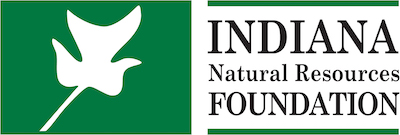Wawasee Inlet Nutrient Study: Diligent Work for Better Water
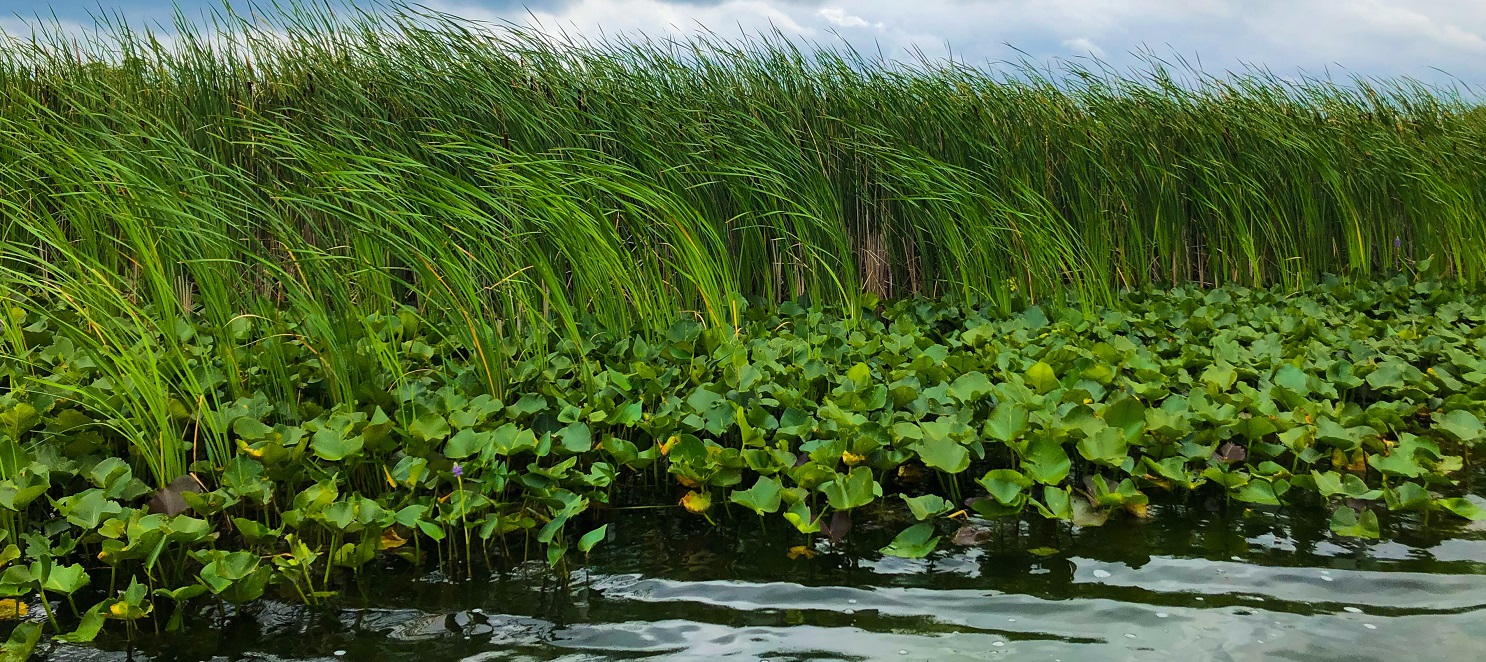
Clean water is more than a privilege, says Dr. Jerry Sweeten, Senior Research Scientist for Ecosystems Connections Institute, Professor Emeritus of Biology and Environmental Studies at Manchester University and leader of the WINS team (Wawasee Inlet Nutrient Study).
“Clean water is dependent on humans to make wise decisions that affect all organisms, including those who have no voice in the matter,” he said. “It is a complex scientific story of how lake ecosystems are influenced by the water they receive.”
The WINS project is led by the Wawasee Area Conservancy Foundation (WACF), and they have partnered with scientists from Ecosystems Connections Institute (Jerry Sweeten, Herb Manifold, Melinda Sweeten and two interns) to serve as the Principal Investigator. The project’s goal is to pinpoint areas where water pollution is occurring and provide data that will help reduce pollutants and imbalances. Suffice it to say, inlet nutrients are kind of a big deal because humans and wildlife depend on clean water to live.
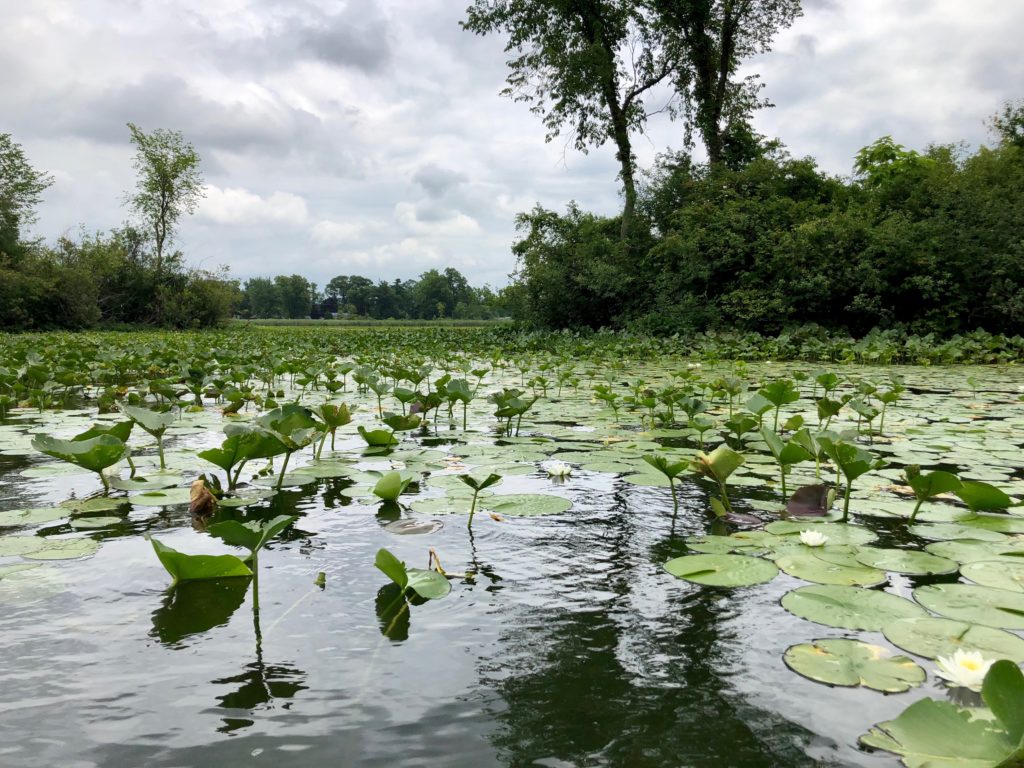
An inlet at Lake Wawasee in 2019
“This data will and must lead to meaningful and pragmatic conservation initiatives to shut off the nutrient and sediment tap into lakes,” Sweeten said. “There is widespread chronic deterioration of water quality occurring across our lakes that affects lake ecological processes, recreational opportunities and property values.”
Sweeten said that Indiana lakes and streams have the same water quality issues as the western basin of Lake Erie or the “dead zone” in the Gulf of Mexico that stretches for thousands of miles. Waterways of Indiana are highly subject to the chronic nutrient and sediment pollution, and there is a lack of comprehensive scientific data to define the scope of the problem and identify high priority areas and encourage changes that curb waterway pollution.
WINS is conducted using six water quality gage stations that were installed in late 2018. These stations measure the amount of water flowing into and out of Lake Wawasee. Each station has an automatic water sampler that collects six samples each day April through June along with other sensors. During the months of July through March, weekly grab samples are collected at each station, or the samplers are turned on to capture the first major rain event of each month. Over 3,000 samples were collected and analyzed in 2019 and over 18,000 individual water tests were completed. The analysis includes, nitrogen, phosphorus, and total suspended sediment. The project is expected to last for a duration of three years.
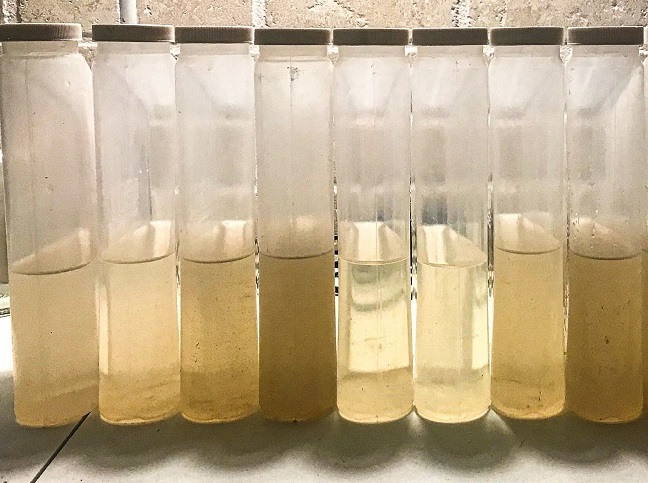
Water samples from the Wawasee Inlet Nutrient Study
Heather Harwood, executive director at WACF, said, “We have identified 99 hotspots in our watershed. These hotspots contribute sediment and/or nutrients to our streams and ultimately lakes. This data-intensive work will help us prioritize where to focus limited funding to fix these critical areas.”
Such an extensive study is quite expensive, but worth the expense. Clean water may be taken for granted by many, but it is important to recognize that clean water is a privilege and requires human responsibility to maintain. The scientists working on the WINS project are hopeful that the data they collect will inspire others and result in robust basin-wide soil and water conservation initiatives and clean water free of excess nutrients and sediment. WACF partners with other organizations with similar goals in order to locate funding.
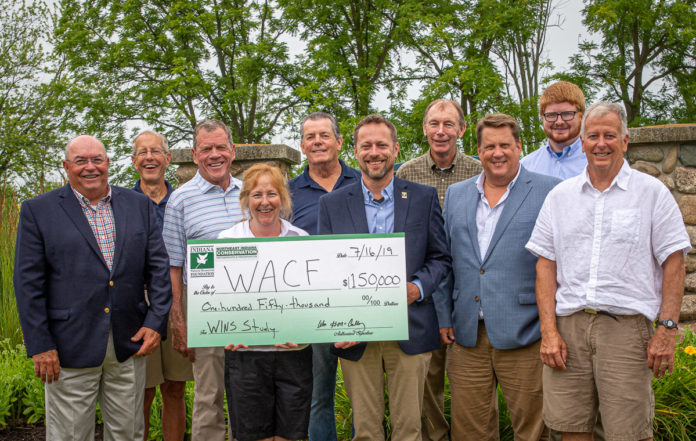
Members of Northeast Indiana Conservation Partnership & Preservation, INRF and WACF along with Dr. Jerry Sweeten and his team, 2019.
WACF extended much thanks to the Northeast Indiana Conservation Partnership & Preservation Banquet, which raised funds for the WINS study. The funds were presented from the Indiana Natural Resources Foundation as a matching grant in the amount of $150,000. Harwood said, “WACF has been impressed with the Northeast Indiana Conservation Partnership & Preservation group’s ability to bring people together and raise awareness.” The last banquet was held in 2019 and garnered active participation from many community leaders and conservation enthusiasts.
Financial support for the WINS project was also provided by the Glacial Lakes Fish Habitat Partnership (USFWS) and Kosciusko Community Foundation.
